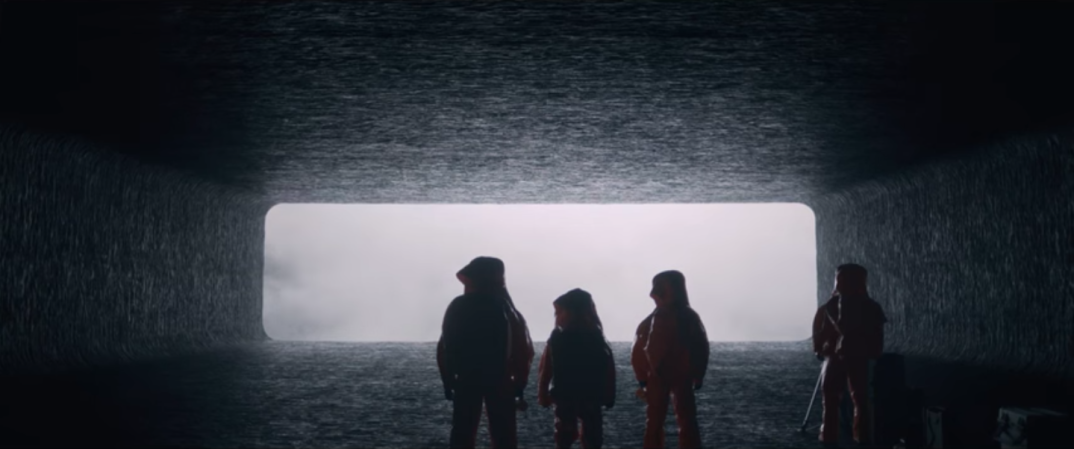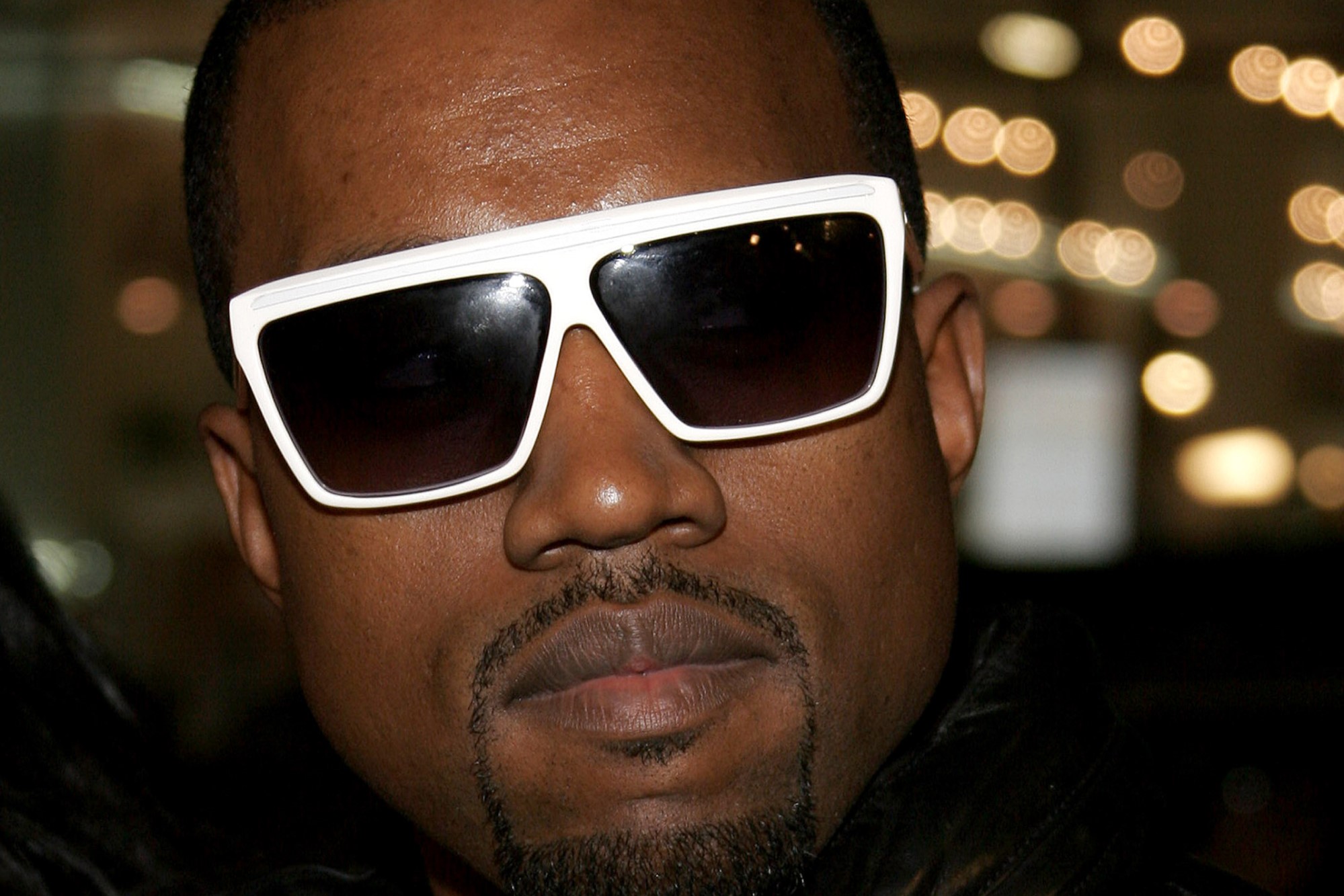Arrival, Nietzsche and Choosing Your Life
Editor’s Note: This article contains spoilers for Arrival and Passengers.
If you were to see your life unfold ahead of you, with all of the triumphs but interspersed with the tragedies in all of their grittiness and grief, would you choose to experience it, in all of that detail? Not just in spite of the inconveniences and harms, not full of regrets, but could you wholeheartedly say “Yes!” to the life that will be, or has been, yours?
The idea of saying “yes” to going through your life again indefinitely is a thought experiment posed by Friedrich Nietzsche, called the “eternal recurrence.” Interpreted one way, this thesis is a test – are you prepared to assent to the structure of your life, to accept what you are and what the world is? Interpreted more strongly, the thesis involves a commitment about the way the world works. This strong interpretation, found in some Indian philosophy as well as ancient Greece, suggests that the world unfolds over and over again. Because of the universe’s cyclical nature, it behooves us to take up an attitude towards the way that we experience the world of mindful acceptance.
Questions surrounding the eternal recurrence abound in Arrival, a recent movie where aliens arrive and confound humanity’s attempts to communicate with them. The main character, a Dr. Louise Banks, is a linguist who attempts to successfully understand the purpose of the arrival of the alien “heptapods”, and through gaining a fluent understanding of their language and relating to the creatures, she gains the ability to see her future life.
In her visions of the future, Banks is married with a daughter, but after a seemingly idyllic childhood, the daughter is treated for a serious illness and dies quite young. We see the struggles of doctor’s appointments and the time spent in the hospital, before Banks is left holding her daughter after she dies. During a particular memory, when her child is around 10 years old, Banks sees herself explaining her break-up with her husband to her daughter – he didn’t agree with Banks’ decision. Presumably, when Banks disclosed her judgment that it’s best to go forward with this future despite all of the pain of losing the daughter (and the husband), the husband disagreed enough to end the marriage. But Banks chose this life, even after having all of the pain and suffering involved in it disclosed to her.
Her act of choosing to pursue her future life even after experiencing these backwards memories is reminiscent of the eternal recurrence in its strong interpretation. It is as if she has experienced this life happening, and chooses to go through it again.
There are, however, some further philosophical issues with this choice. First, it is not clear from the movie (or the notion of the eternal recurrence in any of its iterations) whether Banks is actually free to choose to alter the path shown to her. Having seen visions as if they were memories of what is to come, it could be that Banks is facing the future realities, and that her choices are a foregone conclusion. Depending on how we interpret this possibility, she may have the option of facing the future with trepidation, fear, acceptance or gladness, but without agency beyond choosing the attitude with which she approaches her future path.
Second, there is the issue of how ethically she is making this choice. There are two people that her choice obviously affects: her husband and her daughter. In her visions, she sees that her husband thinks she makes the wrong choice by going through with the path laid out in her visions. In going forward with marrying him and agreeing to have a child together, while waiting until the child grows to inform the father of what she has seen of the future, she has chosen to accept her future while enabling a future she knows her husband doesn’t accept. While she is embracing her fate, she is committing her husband to a fate she knows he wouldn’t choose.
The fact that Banks experienced these visions changes the moral landscape for the parenting choices of the couple. Anyone choosing to have children is opening themselves up to the possibility that tragedy could befall their offspring, and that they and their child will have to endure that. However, there seems to be an important difference between acknowledging this possibility as part of every parent’s position in accepting their role in bringing about their child’s life and rearing them, and entering their parental role in the knowledge that they will be in for a tragic future. Banks got to make that choice, and her husband did not.
The structure of this decision is analogous to the major plot device in another major movie currently in theaters: Passengers, staring Chris Pratt and Jennifer Lawrence. In this movie, 5,000 passengers are aboard a space ship on a journey to a planetary colony in a state of hibernation. Chris Pratt’s character is woken up over 90 years too soon by a malfunction in the processing that could have happened to anyone. After surviving for over a year in solitude, and having formed a strong (and strongly disconcerting) attachment to Jennifer Lawrence’s character by researching her passenger information, he reluctantly decides to wake her up.
Like the fate of Dr. Banks’ daughter, the aspect of moral interest in this decision lies not just in how unfortunate a position Lawrence’s character (pointedly named “Aurora”, for any Sleeping Beauty fans watching) is placed in. Rather, it is the difference it makes to have to deal with an unfortunate situation as the result of someone’s choice rather than happenstance. Dr. Banks’ husband isn’t in the position of every parent, who needs to deal with the bad luck of the world when it comes to accidents, ill health, and other calamities. He needs to deal with this bad luck as something that was chosen in some sense by his wife. Similarly, Lawrence’s character is not in the position that Pratt’s was – that is, the passenger whose life was stolen by the flukes of the malfunctioning space ship. Lawrence’s character is facing Pratt’s fate, but as a result of being chosen.
This difference in misfortune seems to matter not just in giving us a target for complaint. It certainly does alter the relationship with the person who brought about our misfortune. But it also seems to make the misfortune greater, in that, when a person is in some sense responsible for bringing it about, it could have been avoided. We must deal with the luck of the world in many respects, with natural disasters, and contingent circumstances, and unavoidable illnesses. But when something unfortunate comes about because of someone’s choice rather than the cosmic dice roll, it seems to matter and alter our orientation towards our misfortune. Because it was caused by someone’s decision, it seems harder to accept, it feels so easily avoided, in a way that the vagaries of the universe don’t. Choosing to accept a life path, or choosing to live through a future in the way that Dr. Banks did, is made more difficult, perhaps, when the misfortunes are a result of someone’s choices.
Lawrence’s and Pratt’s characters make it through the misfortunes they face, with acts of great acceptance of their fate, despite its deeply tragic external appearance. However unlikely or relatable that outcome may seem, the notions of fate and how one ought to approach misfortune are themes throughout that film as well.
In Arrival, Dr. Banks gains the ability to see her future. Whether she can alter it or not, she takes on her path seemingly with purpose, even knowing the loss that she will face. Ask Dr. Louise Banks, would you live your life again, exactly the same, with all your knowledge, and she would answer “Yes!”
Would you?





